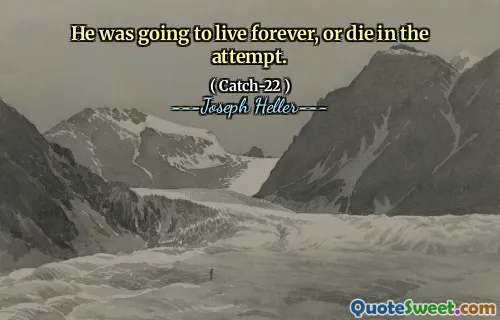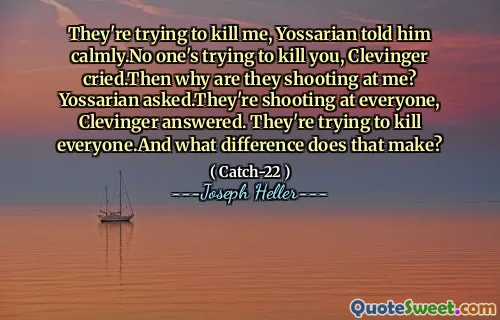
He felt imprisoned in an airplane. In an airplane there was absolutely no place in the world to go except to another part of the airplane.
In Joseph Heller's "Catch-22," the protagonist experiences a profound sense of confinement while aboard an airplane. The confined space serves as a metaphor for his feelings of entrapment, illustrating how the aircraft offers no real escape or freedom. The only movement available to him is within the limited confines of the airplane itself, emphasizing a feeling of helplessness and isolation.
This feeling of imprisonment reflects broader themes in the novel, where characters grapple with the absurdities of war and bureaucracy. The inability to escape not just the physical space, but also the larger systemic constraints, underscores the struggle for autonomy in dire circumstances, making the airplane a symbol of both physical and existential confinement.











